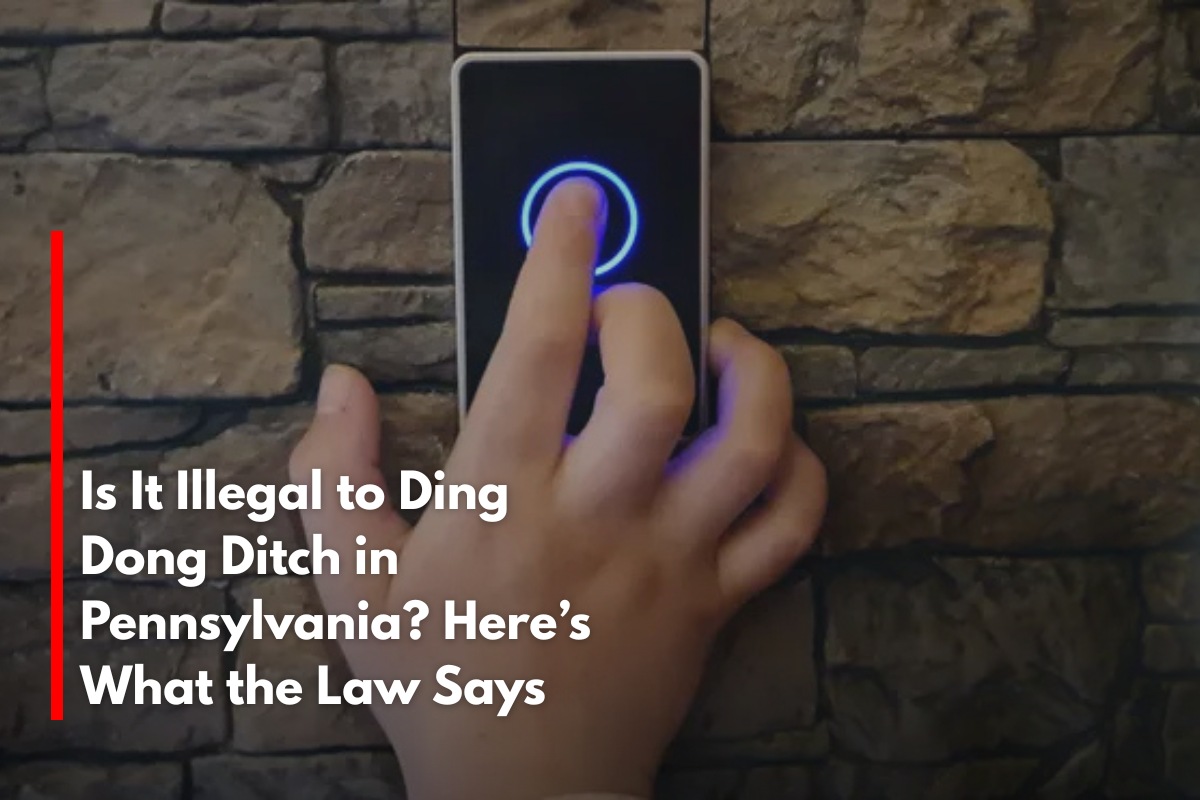Ding dong ditch, the prank where someone rings a doorbell and runs away before the occupant answers, has been a common childhood activity for generations. However, in 2025, Pennsylvania residents should be aware that while it may seem harmless, this prank can have serious legal consequences. Here is what Pennsylvania law says about ding dong ditching and the potential risks involved.
No Specific Law Against Ding Dong Ditching
Pennsylvania does not have a specific law explicitly banning ding dong ditching. The act itself—ringing a doorbell and fleeing—has historically been viewed as childish mischief rather than criminal behavior. However, legal problems arise if the prank escalates into trespassing, vandalism, or harassment, which are governed under Pennsylvania’s criminal statutes.
If a person trespasses on private property beyond the doorstep or causes damage while participating in a ding dong ditch prank, they could face charges for criminal trespass or criminal mischief depending on the severity and circumstances.
Potential Charges Linked to Ding Dong Ditching
Though the prank itself may be seen as annoying, Pennsylvania law enforcement treats some behaviors associated with ding dong ditching seriously:
Criminal Trespass: If an individual enters or remains on private property without authorization beyond just ringing the doorbell, they can be charged with criminal trespass, a misdemeanor punishable by fines or jail time.
Disorderly Conduct: Engaging in behavior that disturbs the peace or frightens occupants could result in disorderly conduct charges, especially if the prank causes fear, alarm, or disruption.
Harassment or Stalking: Repeated ding dong ditching or targeting someone intentionally could escalate into harassment charges if it causes distress or alarm for the victim.
Risks of Ding Dong Ditching in Today’s Climate
Recent incidents in Pennsylvania and across the U.S. highlight the potential dangers of ding dong ditching. Increased use of doorbell cameras and social media challenges has made the prank more visible and controversial. Homeowners have sometimes reacted aggressively—law enforcement warning that misunderstandings and escalations could have tragic consequences.
For example, law enforcement in Northampton Township, PA, cautioned that what once seemed like a harmless game could escalate quickly, resulting in property damage or confrontations.
Pennsylvania’s Distracted Driving Law (Related Safety Context)
While not directly related to ding dong ditching, Pennsylvania implemented a hands-free law on June 5, 2025, banning the use of handheld devices while driving to improve road safety. This law underscores the state’s broader commitment to reducing risky behaviors that cause harm or distraction.
Advice for Parents and Youth
Authorities emphasize the importance of educating children about the potential consequences of seemingly harmless pranks like ding dong ditching. Parents should discuss the risks involved—including legal repercussions, possible escalation with neighbors, and safety concerns. Encouraging responsible behavior can prevent escalation into criminal charges or worse incidents.
While ding dong ditching is not outright illegal in Pennsylvania, certain behaviors linked to it—criminal trespass, disorderly conduct, and harassment—can lead to legal trouble. The prank’s historical reputation as harmless fun is contested by modern safety concerns and legal complexities. Anyone considering this prank should be aware of the risks and consequences to avoid turning childhood fun into serious trouble.
Sources
(https://www.usatoday.com/story/news/nation/2025/09/07/ding-dong-ditching-prank-shootings/85956267007/)
(https://www.cnn.com/2025/09/03/us/houston-ding-dong-ditch-shooting-wwk)
(https://cumberland.crimewatchpa.com/lowerallentwppd/41647/cases/ding-dong-ditch-becomes-dangerous)
(https://www.margolisedelstein.com/articles/hands-free-law-goes-into-effect-in-pennsylvania-on-june-5-2025/)











